MercoPress. South Atlantic News Agency
Politics
-
Thursday, July 29th 2010 - 01:24 UTC
Chile and Bolivia jointly celebrate mine-clearance in border areas
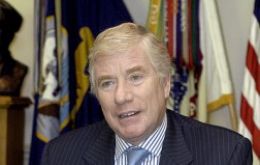
Chile and Bolivian Defence ministers and Army commanders will be meeting Thursday to sign documents declaring Fields free of mines, the border areas of Tambo Quemado 1 and Tambo Quemado 2 along their common border which until only recently were planted with thousands of mines.
-
Thursday, July 29th 2010 - 01:23 UTC
India wants to “deepen and expand” trade accords with Mercosur
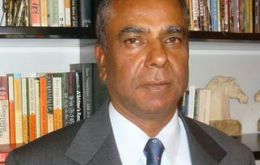
The Indian ambassador to Argentina Rengaraj Viswanathan said his country, currently the fourth largest economy in the world, is looking to “deepen and expand” its accords with the Mercosur and highlighted that Indian businessmen “use Argentina as a platform” to access regional markets.
-
Thursday, July 29th 2010 - 00:49 UTC
Mujica and CFK announce agreement to jointly monitor the River Uruguay

Uruguay and Argentina finally reached on Wednesday an agreement for the joint monitoring of the River Uruguay which should end the long-standing dispute over the construction of the Finnish UPM/Botnia pulp mill dating back to 2005.
-
Wednesday, July 28th 2010 - 17:51 UTC
Venezuela’s Chavez confirms participation of Mercosur summit in Argentina
Venezuelan president Hugo Chavez office has confirmed he will be participating of the coming Mercosur presidential summit scheduled for next August 3 in San Juan, north of Argentina when the rotating chair of the block will be passing from Buenos Aires to Brasilia.
-
Wednesday, July 28th 2010 - 17:48 UTC
Brazilian military exercise to protect nuclear plants and vast offshore oil deposits
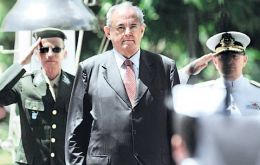
Brazil is holding military exercises along its Atlantic coast with the deployment of 10.000 troops from the three services to ensure the country can protect its nuclear plants and massive offshore oil industry.
-
Wednesday, July 28th 2010 - 06:59 UTC
Venezuela: only a “political negotiation” can end 60 years of violence in Colombia

Venezuela’ Foreign Affairs minister Nicolás Maduro revealed to Paraguayan officials that his country would be proposing in the coming Unasur meeting a “political negotiation” to end decades of political violence in Colombia.
-
Wednesday, July 28th 2010 - 06:55 UTC
Mujica/Mrs. Kirchner summit: River Uruguay waters are choppier than expected
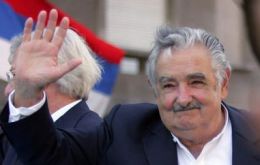
Uruguayan president Jose Mujica will be meeting with his peer Cristina Kirchner Wednesday in Buenos Aires in what seems an attempt to unbind differences relative to the joint monitoring of the river Uruguay, particularly the Finnish pulp mill UPM/Botnia which is at the heart of the ongoing dispute between the neighbouring countries.
-
Wednesday, July 28th 2010 - 02:51 UTC
Uribe rejects any “peace dialogue” with guerrillas; ‘no repeat of that mistake’
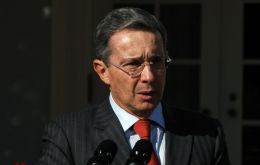
Outgoing Colombian president Alvaro Uribe criticized Tuesday the possibilities of a peace proposal with the Colombian guerrilla groups FARC and ELN and emphasized that Colombia will not fall into the trap of “internationalizing dialogue”.
-
Tuesday, July 27th 2010 - 20:48 UTC
EU population reaches 500 million, with strong boost from net migration

The population in the European Union (EU) rose to over 500 million this year, official figures released by the EU statistics office Eurostat on Tuesday showed.
-
Tuesday, July 27th 2010 - 20:20 UTC
Ecuador moves to increase state control over the oil industry

OPEC member Ecuador says it will start renegotiating contracts with private oil companies as it moves to increase state control over the sector. Under the new hydrocarbons law, the current production-sharing agreements will be replaced by a flat fee.
